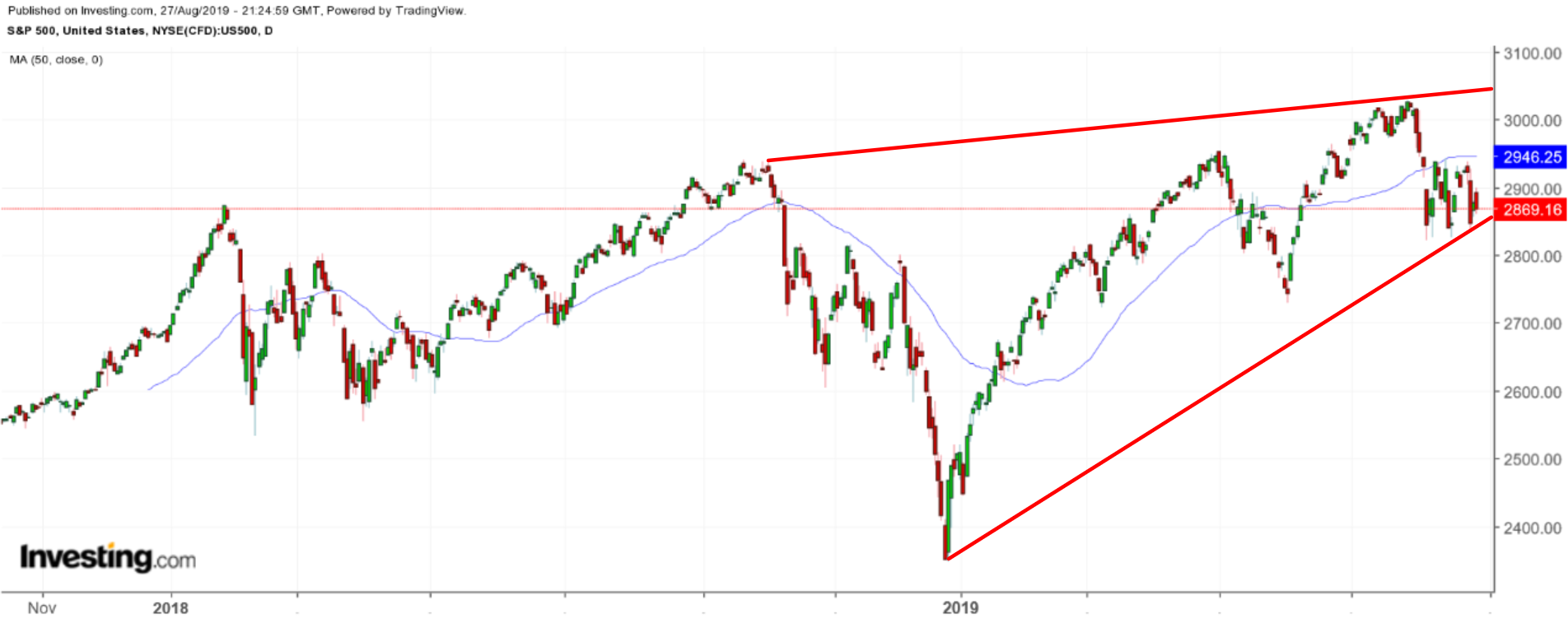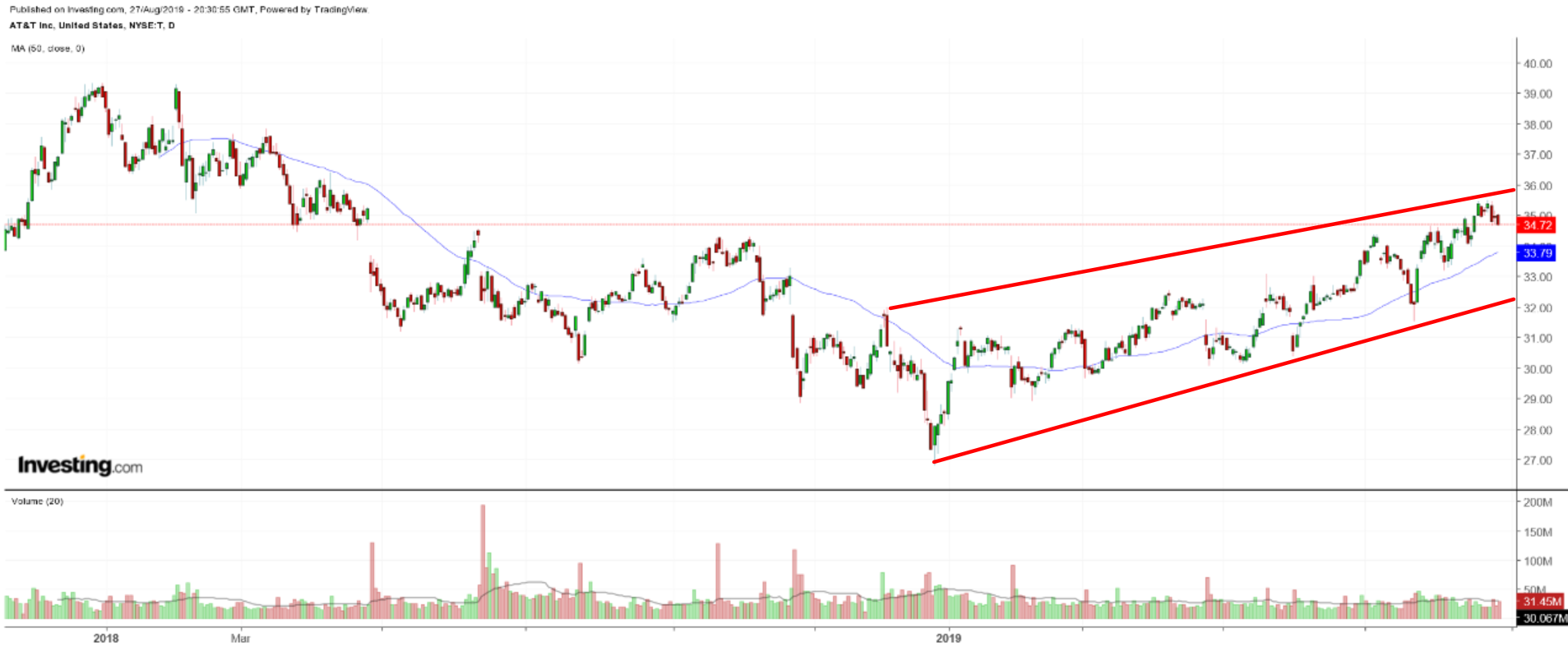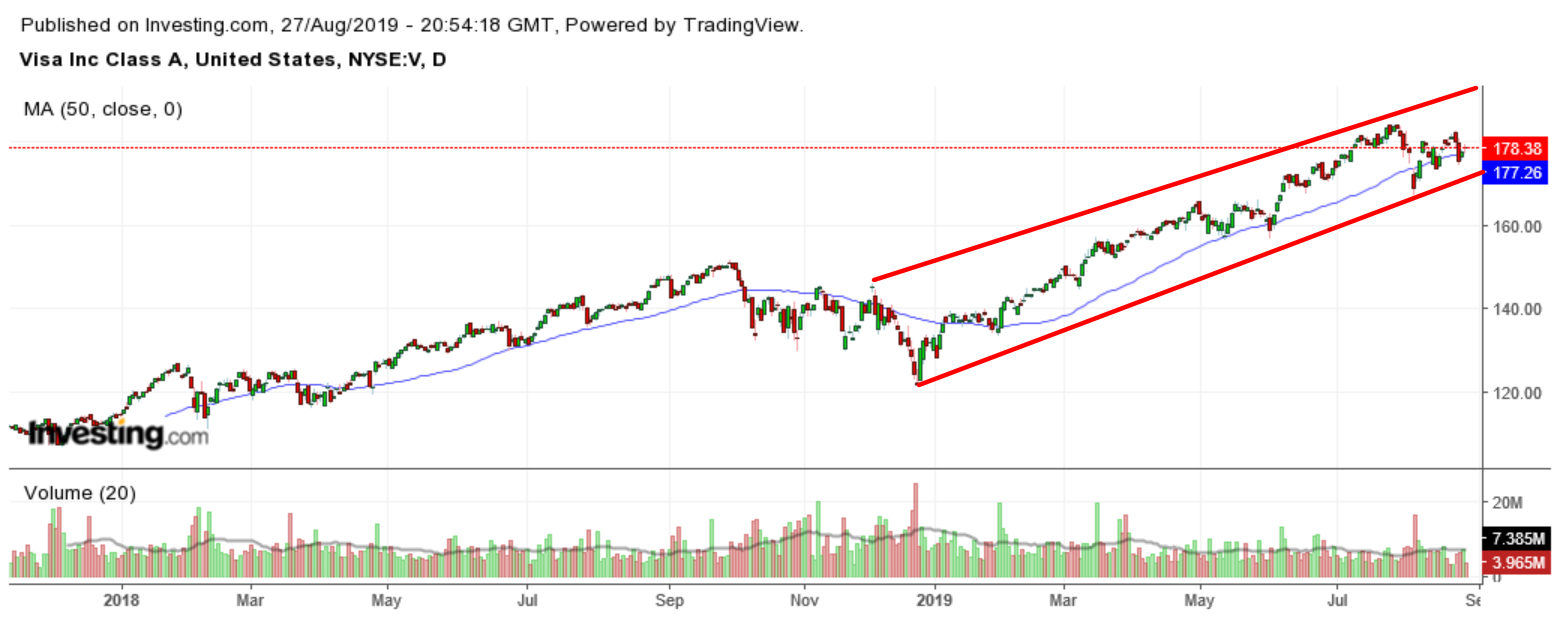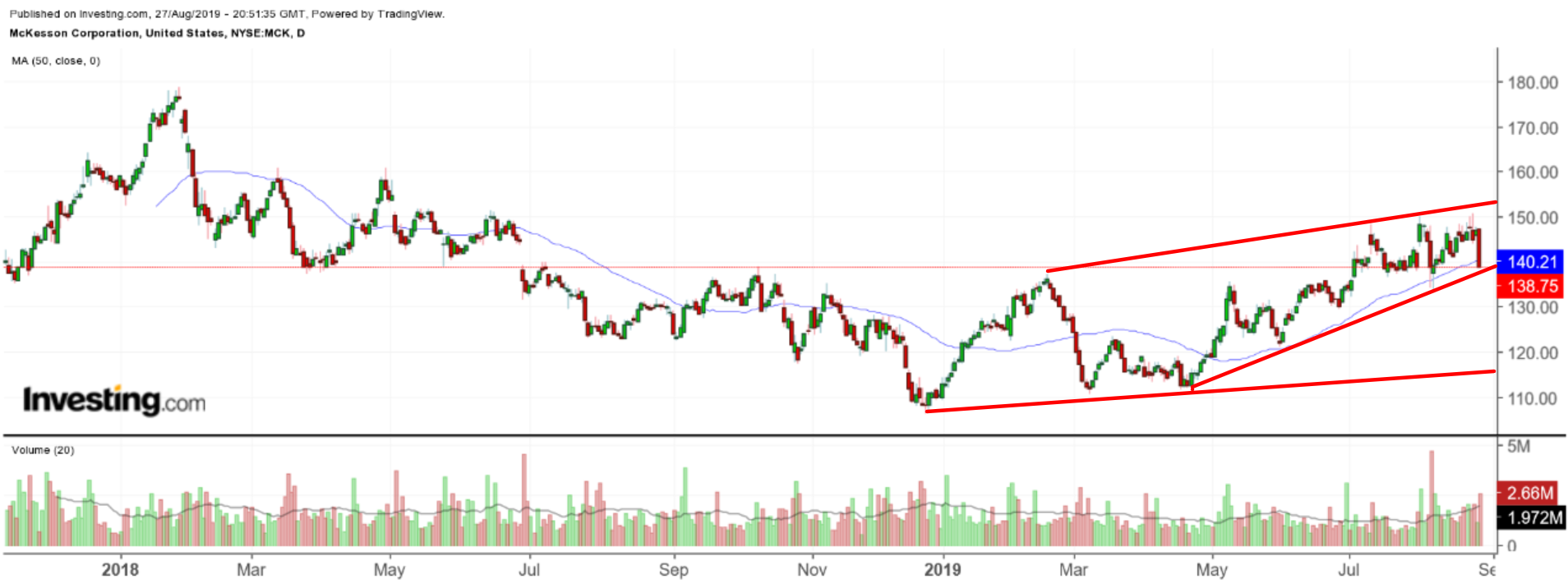Escalating worries related to the ongoing U.S.-China trade war are once again rattling Wall Street, after U.S. President Donald Trump announced additional tariffs on $550 billion of Chinese imports last week. This salvo came in retaliation for Beijing's announcement of more tariffs of its own on $75 billion of U.S. goods.
Investors, fearful that tariffs could tip the U.S. economy into a recession, have dragged the S&P 500 down about 4% so far in August.

While most larger cap companies are finding it difficult to insulate themselves from the effects of the U.S.-China trade conflict, the three names below are likely to outperform in the months ahead since they're less at risk from any trade war fallout.
1. AT&T: High-Yield, Blue-Chip Dividend Stock
Shares of AT&T (NYSE:T), the world's largest telecommunications company, are up nearly 22% this year. The stock closed at $34.72 on Tuesday, within sight of a 52-week high of $35.50, touched on August 22, giving it a market cap of $253.7 billion.
With the trade war more likely to affect goods-producers with significant revenue exposure to China, services companies that generate most of their sales domestically should suffer less than their multi-national counterparts, which makes AT&T a good bet going forward.

The Dallas, Texas-based telecom and media giant posted upbeat second quarter results on July 24. AT&T reported earnings per share (EPS) of $0.89, matching expectations. Sales in the quarter were $44.96 billion, up 15% from the same period a year earlier, and just ahead of expectations for revenue of $44.89 billion.
AT&T’s high dividend growth—the company is currently paying out $0.51 per share per quarter—implies an annualized dividend of $2.04 per share. This just enhances the appeal of both the company and the stock. Its dividend yield is currently 6.01%, almost triple the implied yield for the S&P 500, which is 2.04%.
2. Visa: Credit Card Giant With Limited China Exposure
Visa is the second name on our radar. The world’s largest payment processing company, with international operations in more than 200 countries, ranks the U.S. as its largest market.
The company’s limited exposure to the world’s second-largest economy makes it one of the top China-proof names to consider as trade tensions accelerate.
Visa shares have gained almost 35% since the start of the year, making it the Dow’s best performing component of 2019. The stock closed at $178.38 last night, not far from its recent 52-week high of $184.07, reached on July 29. At current valuations, the credit card giant is the seventh largest company in the world with a market cap of $387.5 billion.

The San Francisco-based payments processor easily beat estimates on both the top and bottom lines when it released earnings for its fiscal third quarter on July 23. Earnings per share totaled $1.37 in the quarter ended June 30, surpassing expectations for EPS of $1.32 and up from $1.20 in the same period a year earlier. Revenue climbed 11.5% to $5.84 billion, above forecasts of $5.7 billion.
Total payments volume on a constant dollar basis rose 8.7% to $2.23 trillion, with the U.S. accounting for about 8.8% of that.
3. McKesson: U.S.-Focused Healthcare Stock
Our final name comes from the healthcare sector. Like the two companies mentioned above, McKesson (NYSE:MCK), widely considered to be the leading healthcare company for pharmaceutical distribution, also has limited revenue exposure to China and generates most of its sales within the U.S.
The stock, which finished yesterday at $138.75, has gained 25% in 2019, giving it a market cap of $25.6 billion. On August 23 it hit a fresh 52-week high of $150.82.

The Irving, Texas-based company announced earnings and revenue on July 31, which easily topped consensus estimates thanks in large part to its strong performance in its U.S. domestic operations. Earnings per share totaled $3.31, much better than expectations of $3.03, while revenue climbed 6% from the same period a year earlier, to $55.7 billon, easily beating estimates for sales of $54.0 billion.
Its strongest performance came from the U.S. Pharmaceutical and Specialty Solutions segment, which climbed 8%.
The upbeat results prompted McKesson to boost its guidance for the remainder of the fiscal year. The drug distribution and wholesale specialist now expects EPS in a range between $14.00-to-$14.60, up from its previously provided target of $13.85-to-$14.45.
